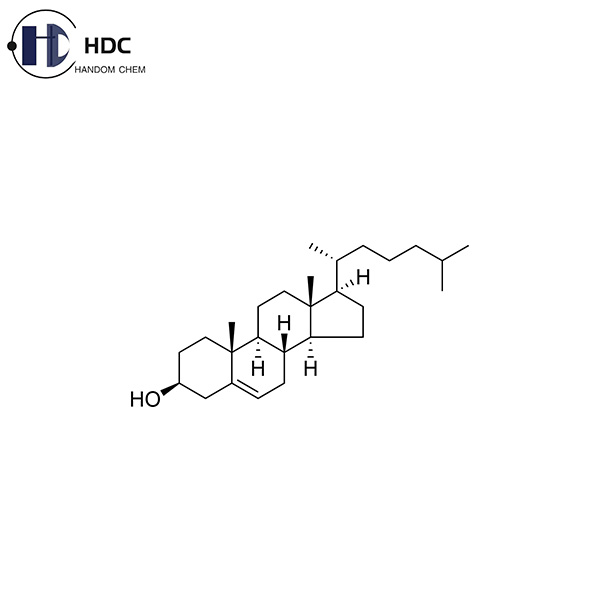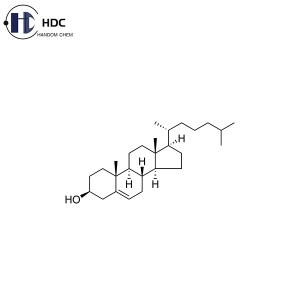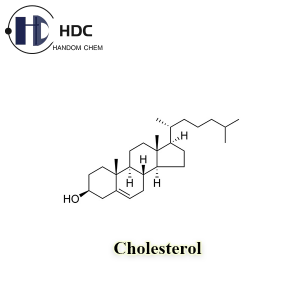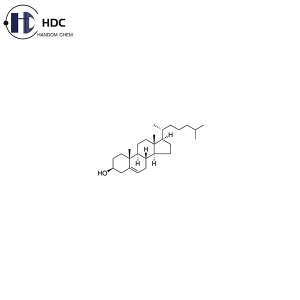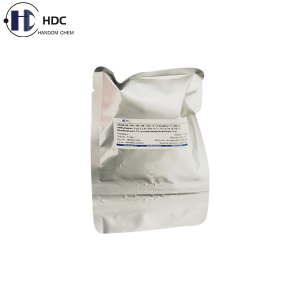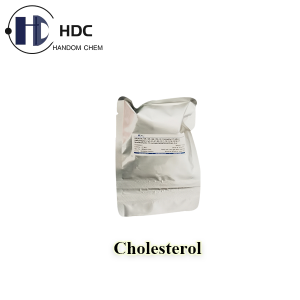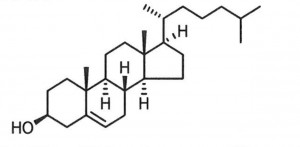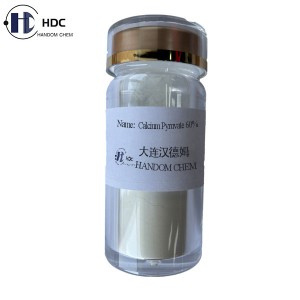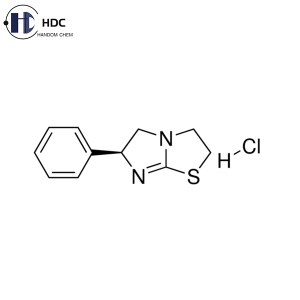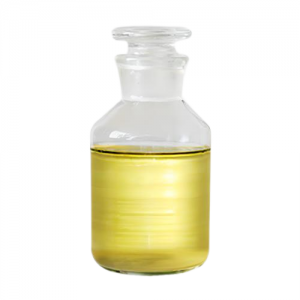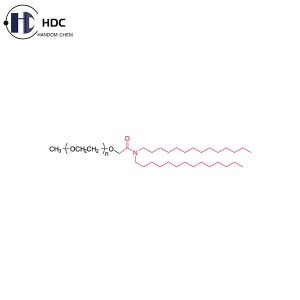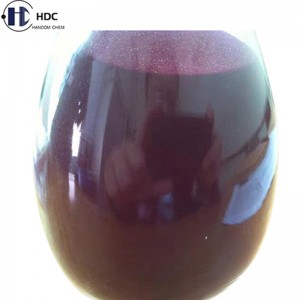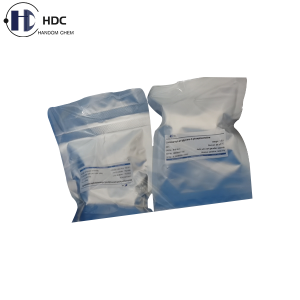Cholesterol(Plant Origin)
Brief Introduction:
Plant cholesterol is a substance similar to cholesterol that exists in plants, the scientific name is Phytosterol. Phytosterol is an active ingredient in plants and is very beneficial to human health.
Studies have found that phytosterols have the effects of lowering blood cholesterol, inhibiting breast hyperplasia and regulating immunity. Among them, lowering cholesterol is the most certain conclusion. Domestic and foreign studies have shown that phytosterols can compete with cholesterol in the intestines, reduce cholesterol absorption, and effectively reduce the content of "bad" cholesterol (total cholesterol and low density lipoprotein cholesterol) in the blood of patients with hyperlipidemia without affecting the content of "good" cholesterol (high density lipoprotein cholesterol) in the blood. Therefore, it has a good lipid-lowering effect on patients with hyperlipidemia.
According to statistics, the more phytosterols are consumed in the diet, the less risk of heart disease and other chronic diseases.
At present, many international organizations and scholars recommend the intake of foods high in phytosterols to reduce the occurrence of chronic diseases such as coronary heart disease.
Health-Promoting Properties of Plant-Source Cholesterol:
1. Cardiovascular Health:
The effects of plant-based cholesterol on cardiovascular health are profound. Many studies have demonstrated their ability to lower Low Density Lipoprotein Cholesterol(LDL-C), thereby reducing the risk of atherosclerosis and cardiovascular disease. Plant-based cholesterol helps maintain a healthy lipid profile, which is a key factor in preventing heart-related complications.
2. Anti-inflammatory Effects:
In addition to its cholesterol-lowering properties, plant origin cholesterol also exhibits anti-inflammatory effects. Chronic inflammation is associated with a variety of diseases, including cardiovascular disease, arthritis, and certain cancers. The ability of plant-derived cholesterol to modulate inflammatory responses demonstrates its potential in the prevention and management of inflammatory diseases.
3. Antioxidant Activity:
Plant-derived cholesterol also has antioxidant properties, which helps to scavenge free radicals from the body. This antioxidant activity helps protect cells, slows down the onset of oxidative stress, and may play a role in reducing the risk of chronic diseases associated with oxidative damage.
Chemical Structural Formula:
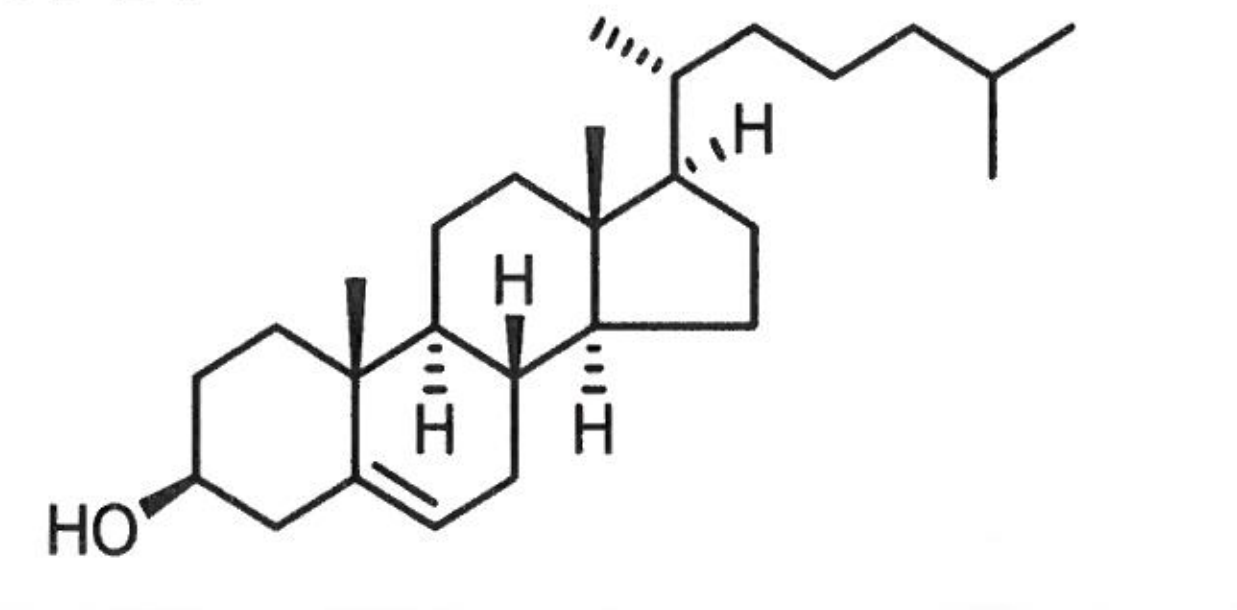
Specifications of our Plant-Based Cholesterol:
| Test Items | Specifications | Test Methods |
| Appearance | White powder or flake crystal | Visual |
| Identification | Complies with the reference substance structure | IR |
| Complies with the reference substance structure | TLC | |
| Passes the test | Color Reaction A | |
| Passes the test | Color Reaction B | |
| Solubility | This product is easily soluble in chloroform, dissolved in ether, slightly soluble in acetone, ethyl acetate, slightly soluble in ethanol, insoluble in water | Pharmacopoeia examples |
| Residue on Ignition | Not more than 0.1% | ChP<0841> |
| Acid Value | Not more than 0.3ml | Titration Method |
| Purity | Not less than 98.0% | HPLC |
| Assay | 95.0% ~ 115.0% | HPLC |
| Specific Rotation | -34.0° ~ -38.0° | ChP<0621> |
| Loss on Drying | Not more than 0.3% | ChP<0831> |
| Melting Range | 147℃ ~ 150℃ | ChP<0612> |
| Peroxide Content | Not more than 6.0% | ChP<0713> |
| Residual Solvents | Not more than 0.5% | GC |
| Endotoxin | Not more than 0.1 EU/mg | ChP<1143> |
| Bacteriological Data | TAMC/g: Not more than 100CFU/g | ChP<1105> |
| TYMC/g: Not more than 10CFU/g | ||
| Elemental Impurities | Not more than 10ppm | ChP<0821> |
| Arsonium Salt | Not more than 0.0002% | ChP<0822> |
| Nickel(Ni) | Not more than 1ppm | ChP<0412> |
| Ethanol Insoluble Matter | Must not be sedimented or cloudy | Visual |
| Moisture | Not more than 1.0% | KF |
Application of Plant-Derived Cholesterol:
1. Functional Foods and Fortified Products:
Incorporating plant-derived cholesterol into functional foods and fortified products has become a trend. For example, plant-derived cholesterol is added to products such as margarine, spreads, and plant milks, providing consumers with a convenient way to increase their daily intake. These products are suitable for individuals who want to manage their cholesterol levels and promote heart health.
2. Dietary Supplements:
Dietary supplements are another way to use plant-based cholesterol, they are usually provided in capsule or liquid form. These supplements provide an option for those who want to increase their intake of plant-based cholesterol in a more direct way.
3. Medicine:
Since plant-derived cholesterol does not have the potential risk of carrying animal viruses like animal-derived cholesterol, it can be used as an excipient for high-end preparations: small molecule liposome drugs, nucleic acid drugs, mRNA vaccines, and non-animal-derived cell culture media for protein drugs.
Packaging:
1g/Bottle, 3g/Bottle, 5g/Bottle, 10g/Bottle, 100g/Bag or according to the specific requirements from customers.
Recommended Storage Conditions:
For short-term storage, it is recommended to store at 2℃ ~ 8℃; it is recommended to keep at -25℃ ~ -15℃ under an inert atmosphere for long-term storage.
For reducing the absorption of the moisture, it should be slowly warmed to ambient temperature before opened.
Shelf Life:
24 months if stored under above mentioned conditions.


